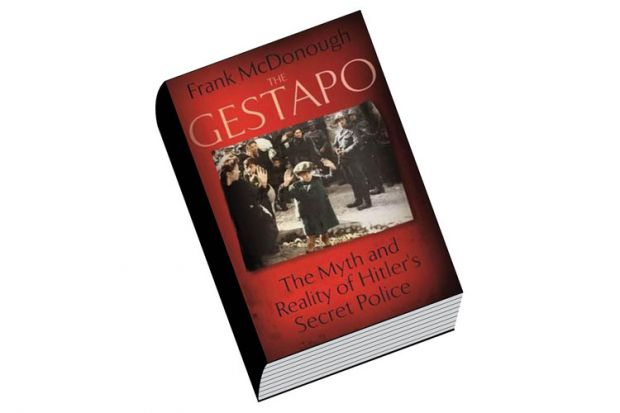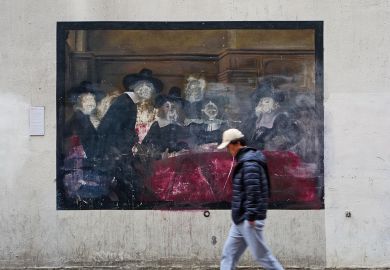In the weeks before the end of the Second World War, Hitler’s regime burned all kinds of incriminating evidence that the Allies might use in the expected upcoming trials against Nazi officialdom. Still more of the documentary record went up in smoke in the bombing, including practically all the files on “suspects” created by the notorious secret state police, the Geheime Staatspolizei, better known as the Gestapo.
Quite by chance, however, about 70,000 of these case files survived in Düsseldorf, 19,000 in Würzburg and 12,000 in Speyer. Although these files have been available to historians since 1945, most scholars ignored them, and few questioned the clichés about the Gestapo as purportedly “all present, all seeing, and all knowing”. That was the common account of the secret police when I began studying these materials more than 25 years ago. At that time, well-meaning contemporaries who had lived through the Third Reich repeatedly assured me that “the Gestapo was everywhere”. Since the 1990s, however, historical research has revolutionised the study of the Nazi police system, so that by now few accept the old narrative.
Frank McDonough makes a conscientious effort to explain how the Gestapo came into being, who served in it, and how it operated on a routine basis. However, he cannot live up to his billing of this study as a myth-buster, and indeed much of this book rests on a synthesis mainly of the English-language secondary literature.
Following his larger claim, the author narrows his focus to the Rhineland, and to his credit, he uses some Gestapo case files from Düsseldorf, although unfortunately his analysis of them is impressionistic, not systematic. He selects examples to provide a general sense of how the Gestapo system worked, in policing society, religion, communism and the Jews. The best chapters are those in which he uses the original case files and allows the voices from those times to tell their complex tales, which are by turns mundane, surprising and even shocking. McDonough has an instinct for good stories and, for example, when he writes about the policing process aimed at the outlawed Communist Party, he finds a bewildering array of people, among them some who converted to Nazism or joined the Wehrmacht. Against his expectations, the notorious Gestapo was lenient with some diehard Communists, and yet brutal with others. The police got on the trail of these and all the additional “suspects” who McDonough studied thanks to information from colleagues, neighbours, chance acquaintances, old friends, even husbands or wives.
Thus, McDonough reinforces a point previously made by others, namely that the Gestapo was a reactive organisation that, given its relatively few officials, necessarily relied on prompts from outside its ranks, particularly denunciations from the population. Hitler himself once bemoaned how the new Reich was turning into a land of denouncers and snoopers, which was at odds with his aim of creating a conflict-free, as well as a “racially pure”, community of the people. Yet it was precisely because the Nazis craved more information than ever before, in order to control more aspects of social and even sexual life, that they ended up facing such a quandary. Ultimately, they decided it was better to have too many tips rather than too few, even if that contradicted sacred political, social and legal values.
Robert Gellately is Earl Ray Beck professor of history, Florida State University.
The Gestapo: The Myth and Reality of Hitler’s Secret Police
By Frank McDonough
Coronet, 320pp, £20.00
ISBN 9781444778052
Published 27 August 2015
Register to continue
Why register?
- Registration is free and only takes a moment
- Once registered, you can read 3 articles a month
- Sign up for our newsletter
Subscribe
Or subscribe for unlimited access to:
- Unlimited access to news, views, insights & reviews
- Digital editions
- Digital access to THE’s university and college rankings analysis
Already registered or a current subscriber? Login




